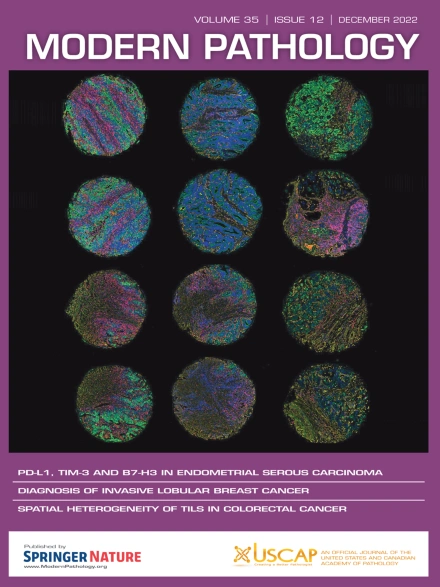Analysis of the Application of Professional Society Screening Guidelines for Colorectal Polyposis Syndromes at a Single Institution
Abstract
Several professional society guidelines suggest germline genetic testing for colorectal polyposis syndromes in patients with ≥10 lifetime adenomatous polyps. This study evaluated the factors associated with genetic testing decisions and outcomes when germline testing was recommended per guidelines. Surgical archives revealed 145 patients with a recommendation for germline genetic polyposis testing based on guidelines. Demographic data and medical history were collected to examine their association with testing decisions and results. Germline genetic testing was ordered in 90 out of 145 patients and was ordered in younger patients with more lifetime adenomas. Pathogenic alterations were detected in 12 out of 53 patients who completed testing. Younger ages and higher numbers of lifetime adenomas were not associated with the detection of germline genetic alterations. In fact, patients with a pathogenic germline alteration had higher median ages and fewer lifetime adenomas than those without an alteration. Half of the 12 patients with a pathogenic germline mutation were not White non-Hispanic, although White non-Hispanic patients comprised 75.5% of those tested. This study supports the 10 adenomatous polyp threshold for recommending germline genetic polyposis testing, as an alteration was detected in a sizable proportion (>20%) of patients tested. Although a younger age and a higher number of lifetime adenomas were associated with an increased likelihood of ordered tests, no evidence was found to support these additional factors in testing decisions.

 求助内容:
求助内容: 应助结果提醒方式:
应助结果提醒方式:


